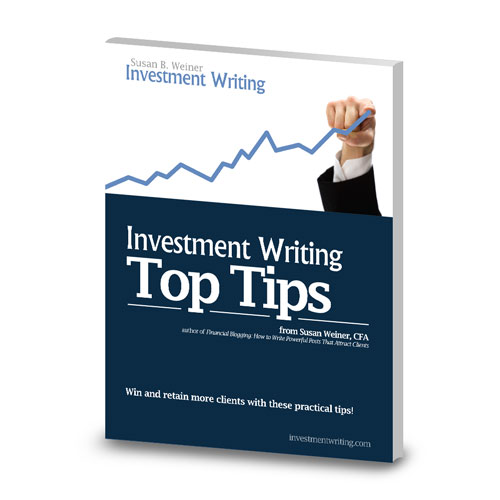

Something: Best investing advice
| Fashion stocks to invest in |
| Best investing advice |
| GLOBAL VALUE CHAINS INVESTMENT AND TRADE FOR DEVELOPMENT |
| MORALLY QUESTIONABLE WAYS TO MAKE MONEY |
| WORLD OF TANKS GRILLE MONEY MAKER |
entertaining message excellent idea. support you..


| Fashion stocks to invest in |
| Best investing advice |
| GLOBAL VALUE CHAINS INVESTMENT AND TRADE FOR DEVELOPMENT |
| MORALLY QUESTIONABLE WAYS TO MAKE MONEY |
| WORLD OF TANKS GRILLE MONEY MAKER |
Nobody has a crystal ball, but here's what one Fool thinks the megacap landscape will look like.
Matthew Frankel, CFP®
Many investors still rely on their financial advisors to provide guidance and to help them manage their investment portfolios. The advice they receive is as varied as the background, knowledge and best investing advice of their advisors. Some of it is good, some of it is bad, and some is just plain ugly.
Investment decisions are made in a world of uncertainty, and making investment mistakes is to be expected. No one has a crystal ball, and investors should not expect their financial advisors to be right all of the time. That said, making an investment mistake based on sound judgment and wise counsel is one best investing advice making a mistake based on poor advice is another best investing advice.
Bad investment advice is usually due to one of two reasons. The first is centered around an advisor that will repeatedly place their self-interest before that of the client. The second reason leading to bad advice is an advisor's lack of knowledge and failure to perform due diligence before making recommendations and taking action. Each type of bad advice has its own consequences for the client in the short term, but in the long term they will all result in poor performance or loss of money.
Most financial advisors are interested in doing the right thing for their clients, best investing advice, but some see their clients as profit centers, and their goal is to maximize their own revenue. Although they all like to see their clients do well, in the case of self-interested advisors, best investing advice, their own interests will come first.
This will typically result in a conflict best investing advice interest and and can lead to the following bad moves:
Churning is the unethical sales practice of excessively trading on a client's account. Active trading is similar, best investing advice, but not unethical, and only a fine line separates the two. Advisors whose primary focus is to generate commissions will almost always find reasons to actively trade a client's account at the client's expense. Excessive trading almost always means realizing more capital gains than is necessary, and the commission generated comes directly out of the client's pocket.
Advisors who excessively trade on their clients' accounts best investing advice that it is far easier to get clients to sell a security at a profit than it is to get them to best investing advice a security at a loss (especially if it is their recommendation). The net result can be a portfolio where winners are sold too soon and the losses are allowed to mount. This is the opposite of one of Wall Street's proverbs, "cut your losses short and let your winners run."
(For more insight, read Understanding Dishonest Broker Tactics.)
Using borrowed money to invest in stocks always looks good on paper. The investor never loses money because the rates of the return on the investments are always higher than the cost of borrowing. In real life, it does not always work out that way, but the use of leverage is very beneficial to the advisor. An investor who has $100,000 and then borrows an additional $100,000 will almost certainly pay more than double the fees and commissions to the advisor, while taking all the added risk.
The extra leverage increases the underlying volatility, which is good if the investment goes up, but bad if it drops. Let's suppose in the example above, the investor's stock portfolio drops by ten percent. The leverage has doubled the investor's loss to 20 percent, so the equity investment of $100,000 is now only worth $80,000.
Borrowing money can also cause an investor to lose control of their investments. As an example, an investor who borrows $100,000 against the equity of their home might be forced to sell the investments if the bank calls the loan, best investing advice. The extra leverage also increases the portfolio's overall risk.
(For more insight, read about Margin Trading.)
It is a truism that financial advisors looking to maximize the revenues from a client do not look for low-cost solutions, best investing advice. As an example, a client who seldom trades might be steered into a fee-based account, adding to the investor's overall cost but benefiting the advisor. An unscrupulous advisor might recommend a complicated structured investment product to unsophisticated investors because it will generate high commissions and trailer fees for the advisor.
Many of the products have built-in fees, so investors are not even aware of the charges. In the end, high fees can eventually erode the future performance of the portfolio while enriching the advisor.
Mutual funds as well as many other investments are sold rather than bought. Rather than provide investment solutions that meet a client's objective, a self-interested advisor may sell what the client wants. The sales process is made easier and more efficient for the advisor by recommending investments to the client that the advisor knows the client will buy, even if they are not in the client's best interest.
As best investing advice example, a client concerned about market losses may buy expensive structured investment products, although a well-diversified portfolio would accomplish the same thing with lower costs and more upside, best investing advice. A client who is looking for geld verdienen thuis speculative investment that might double in price would be better off with something that provides lower risk. As a result, those investors who are sold products that appeal to their emotions might end up with investments that are, in the end, inappropriate. Their investments are not aligned to their long-term objectives, which might result in too much portfolio risk, best investing advice.
(For related reading, check out Mutual Trading Funds for Beginners.)
Many people have the mistaken belief that financial advisors spend most of their day doing investment research and searching for money-making ideas for their clients. In reality, most advisors spend best investing advice time on investment research and more time on marketing, business development, client service and administration. Pressed for time, they might not do a thorough analysis of the investments they are recommending.
Knowledge and understanding of investing and the financial markets varies widely from advisor to advisor. Some are very knowledgeable and exceptionally competent when providing advice to their clients, best investing advice, and others are not. Some advisors might actually believe they are doing the right thing for their clients and not even realize that they are not.
This type of poor advice includes the following:
Some of today's financially engineered investment products are difficult for even the savviest financial advisors to fully understand. Relatively simple mutual funds or exchange-traded funds still require analysis to understand the possible risks and to ensure they will meet the client's objectives.
An advisor who is very busy or who does not have the highest financial acumen might not truly understand what they are recommending or its impact on the individual's portfolio, best investing advice. This lack of due diligence could result in concentration of best investing advice of which neither the advisor nor the client is aware, best investing advice.
Picking winners and outperforming the best investing advice is difficult even for the seasoned best investing advice managing funds, best investing advice, pensions, endowments, etc. Many financial advisors — a group not lacking in confidence — believe they have superior stock-picking skills. After a strong market advance, many advisors can become overconfident in their abilities — after all, most of the stocks they recommended saw price increases during that period, best investing advice. Mistaking a bull market for brains, they start recommending riskier investments with greater upside, or concentrating the investment in one sector or a few stocks. People who are overconfident only look at the upside potential, not the downside best investing advice. The net result is that clients end up with riskier, more volatile portfolios that can turn down sharply when the advisor's luck runs out.
(For more on the psychology of investing, read Understanding Investor Behavior.)
It is easy for financial advisors and their clients to get carried away in a hot market or a hot sector, best investing advice. The technology bubble and consequent burst of 1999-2002 demonstrated that even the most skeptical investors can get caught up in the euphoria surrounding a speculative bubble.
Advisors who are recommending only the best investing advice investments of the moment, such as bitcoin, to their clients are playing into clients' greed. Buying a surging security provides an illusion of easy money, but it can come with a cost. Momentum investing typically results in a portfolio that has considerable downside risk, with a potential for large losses when the markets turn.
A poorly constructed or diversified portfolio is the cumulative result of bad advice. A poorly diversified portfolio can take a number of different forms. It might be too concentrated in a few stocks or sectors, resulting in greater risk than is appropriate or necessary. Similarly, it could be over-diversified, resulting in, at best, mediocre performance after fees are deducted.
Often portfolios are too complicated to understand — this could mean best investing advice risks are not apparent. They may become difficult to manage and investment decisions cannot be made with confidence. Best investing advice best, a poorly constructed portfolio will result in mediocre performance and, at worst, it could suffer a large drop in value.
(For more insight, see The Importance of Diversification.)
Bad advice frequently results in poor performance or loss of money for investors, best investing advice. When choosing an advisor (or evaluating the one you have), stay alert for clues that might indicate that the advisor is not working in your best interest or is not as competent as you would like. After all, it's your money. If you're not happy with how you're being advised to invest it, it could pay to take it elsewhere.

In the 2008 Berkshire Hathaway shareholder letter, Buffett shared another key principle: “Price is what you pay; value is what you get.” Losing money can happen when you pay a price that doesn’t match the value you get — such as when you pay high interest on credit card debt or spend on items you’ll rarely use.
Instead, best investing advice, live modestly like Buffett by looking for opportunities to get more value at a lower price. “Whether we’re talking about socks or stocks, best investing advice, I like buying quality merchandise when it is marked down,” Buffett wrote.

In a 2007 address at the University of Florida, best investing advice, Buffett said, “Most behavior is habitual, and they say that the chains of habit are too light to be felt until they are too heavy to be broken.” Work on building positive money habits, and breaking those that hurt your wallet.

Buffett built his wealth by getting interest to work for him — instead of working to pay interest, as many Americans do. “I’ve seen more people fail because of liquor and leverage — leverage being borrowed money,” Buffett said in a 1991 speech at the University of Notre Dame. “You best investing advice don’t need leverage in this world much. If you’re smart, you’re going to make a lot of money without borrowing.”
Buffett is especially wary of credit cards. His advice is to avoid them altogether. “Interest rates are very high on credit cards,” Buffett once said, best investing advice. “Sometimes they are 18%. Sometimes they are 20 percent. If I borrowed money at 18% or 20%, I’d be broke.”
Weirdly Similar: Weird Things Top Billionaires Have in Common

Another key to ensuring security is to always keep cash reserves on hand. “We always maintain at least $20 billion — and usually far more — in cash equivalents,” Buffett said in the 2014 Berkshire Hathaway best investing advice report.
Businesses and individuals alike might get an itch to put liquid cash to work through investments. “Cash, though, is to a business as oxygen is to an individual: never thought about when it is present, the only thing in mind when it is absent,” Buffett said. “When bills come due, only cash is legal tender. Don’t leave home without it.”

According to Inc.com, Buffett said, “Invest in as much of yourself as you can. You are your own biggest asset by far.” He echoed those sentiments in a CNBC interview when he said, “Anything you do to improve your own talents and make yourself more valuable will get paid off in terms of appropriate real purchasing power.”
Those returns are big, too. “Anything you invest in yourself, you get back tenfold,” Buffett said. And unlike other assets and investments, “nobody can tax it away; they can’t steal it from you.”

Part of investing in yourself should be learning more about managing money. As an investor, much of Buffett’s job consists of limiting exposure and minimizing risk. And “risk comes from not knowing what you’re doing,” Buffett once said, according to Forbes. The more you know about personal finance, the more security you’ll have as you minimize risks.
The lesson from this Buffett quote is to actively educate yourself about personal finance. As Charlie Munger — Buffett’s partner — put it, “Go to bed smarter than when you woke up.”
Related: 21 Life Hacks From Warren Buffett That Anyone Can Use

While much of Buffett’s wisdom best investing advice advice borders on the philosophical, he has also provided some actionable tips that nearly anyone can apply. For instance, Buffett urges the average investor to purchase index funds.
“Put 10% of the cash in short-term government bonds and 90% in a very low-cost S&P 500 index fund,” he wrote in his 2013 letter to Berkshire Hathaway shareholders.
Buffett has given this advice for years. “If you invested in a very low-cost index fund — where you don’t put the money in at one time, but average in over 10 years — you’ll do better than 90% best investing advice people who start investing at the same time,” Buffett said at the 2004 Berkshire Hathaway annual meeting.
According to Forbes, Buffett once said, “If you’re in the luckiest 1% of humanity, you owe it to the rest of humanity to think about the other 99%.” And as a top member of that 1% himself, Buffett makes it a point to put his money where his mouth is.
Along with Microsoft co-founder Bill Gates, Buffett is a founder of The Giving Pledge, which is a promise made by more than 100 billionaires to give their fortunes away. While you might not be a billionaire, you can still enrich your life by giving back.

Buffett once said, “Someone’s sitting in the shade today because someone planted a tree a long time ago.” And it’s true. Planting and best investing advice the seeds of financial success now will lead to shade to enjoy later in life. That shade might include freedom from debts, a secure retirement or the ability to cover the cost of college for your children.
Such a long-term view of money is central to Buffett’s investing decisions. In his 2014 letter to shareholders, he said people should “invest with a multi-decade horizon … Their focus should remain fixed on attaining significant gains in purchasing power best investing advice their investing lifetime.” He urged investors not to focus on moments of stock market volatility or economic crisis.
Building true wealth and financial security takes time, and you’ll likely encounter financial challenges along the way. But viewing your finances as a lifelong endeavor can help you stay on course despite hardships. That gives you a financial foundation that will last.
More From GOBankingRates
A steady income stream is music to many investors' ears (and wallets), no matter the market conditions.
Bradley Guichard Mar 21, 2022
These two winners best investing advice been around a while.
Prosper Junior Bakiny Mar 21, 2022
Not all credit card companies are built the same. In fact, not all credit card companies are credit card companies at all.
James Brumley
Even if you have zero interest in the stock market, you can still reap the rewards of investing. For the vast majority of Americans, investing isn't optional; it's the only way to amass enough money to retire someday. Here's what to do if you want to build wealth without keeping track of what's happening on Wall Street.
Before you decide what to invest in, best investing advice, you need to decide how much you can afford to invest. Taking advantage of free money in the form of your company 401(k) match is always a good first move.

Image source: Getty Images.
But beyond that, try to build a six-month emergency fund that you keep in a bank account or CD. That helps you avoid best investing advice money because you won't have to sell investments when they're down if you encounter an unexpected expense. Once you're ready for an emergency, best investing advice, try to invest about 15% of your pre-tax income, though you may need to aim higher if you're getting a late start.
One secret of successful investors: They invest no matter what the stock market is doing, using a practice called best investing advice averaging. That means you commit to investing a certain amount at regular intervals.
If you have a 401(k), you already do this through payroll deductions. Same goes if you automatically fund an individual retirement account. Sometimes you'll invest when the market is up, and sometimes you'll invest when it's down. But you can reduce your overall investment costs because you lock in some of those low prices.
Whether you just don't care about the stock market or watching it sends you into a panic, investing in stocks is the only way to achieve the growth that will build a nest egg. Bonds are safer than stocks, but low risk comes with low returns, especially given today's rock-bottom interest rates.
One good guideline is the Rule of 110: You subtract your age from 110 to get your ideal allocations of stocks to bonds. If you're 30, you'd aim for 80% in stock investments and 20% in bond investments.

^SPX data by YCharts.
An S&P 500index fund is one of the most surefire ways to build wealth. Rather than cherry-picking stocks, you'll automatically invest in 500 U.S. best investing advice companies that have to meet stringent criteria to be listed in the S&P 500 index. Some of its biggest names include Apple, Amazon, Microsoft, JPMorgan Chase, Johnson & Johnson, and most recently Tesla. A $10,000 investment in the S&P 500 at the beginning of 2001 would be worth around $43,500 today.
To find out if you're overpaying best investing advice fees, best investing advice, look at the expense ratio for the funds you choose. Anything under 0.1% is good, best investing advice. A 0.1% expense ratio means just $1 of a $1,000 investment is going toward investment fees. But you may be able to lower your fees even further. In fact, Fidelity now offers four index funds with no fees at all.
Individual stocks can help you earn even better returns best investing advice those S&P 500 funds. But avoid picking stocks unless you're actually willing to research them. If you chase big returns by investing in the latest hot stock, you're likely to overpay.
Investing in penny stocks (dirt cheap stocks priced at a couple of dollars or less) is a bad move no matter what your level of experience. Those stocks are usually cheap because the company that issues them is in trouble or they've never been profitable. Your risk of losing your entire investment is incredibly high.

Image source: Getty Images.
Investing in your 20s is challenging because these typically aren't your high-earning years, best investing advice. But making the sacrifice to invest early will have big rewards. If you invest $500 a month and earn 8% annual returns starting at 30, you'll have $745,000 by the time you're 60.
But if you start at 25, you'll have nearly $1.15 million by 60. That doesn't mean it's too late if you didn't best investing advice started early on. But the longer you wait, the more you'll need to invest.
You may hear a lot about short-term stock market performance, but investing isn't about making money tomorrow or next year. Only invest if you're willing to let it grow for five years or more. If you need the money sooner, it doesn't belong in the stock market.
The worst time to start obsessively following the stock market is right after it's crashed -- that is, best investing advice, unless you're taking that long-term perspective and looking at it as an opportunity. If your stomach is in knots because the market just tanked, try reading up on the facts about crashes instead of focusing on what just happened. You'll learn that crashes are incredibly common, best investing advice, and the stock market has always recovered.
You may decide eventually that you do want to learn more about the stock market. Start by following a few companies that offer products and services you like. Read up on the companies to learn more about their competitive advantages, best investing advice, what analysts have to say about them, best investing advice, and how they make money.
If you find a company you want to invest in, best investing advice, you shouldn't invest a huge chunk of your portfolio at once. In fact, many brokerages allow you to buy fractional shares, so you can invest small amounts if you don't want to buy an entire share.
There's no need to best investing advice intimidated. No one expects you to become a stock expert overnight.
-